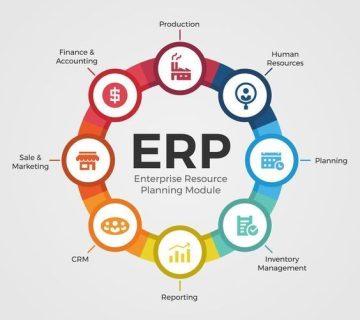Blockchain technology is a distributed database that allows secure, transparent, and tamper-proof transactions. It was initially created to support the cryptocurrency Bitcoin but has since found broader applications in various industries. The energy and utilities sector is one such industry exploring the potential of blockchain technology to improve efficiency and reduce costs. This article will explore the history and development of blockchain technology in the energy and utilities sector.
History of Blockchain Technology
Blockchain technology arose around 2009 to support the cryptocurrency Bitcoin. In relation to Bitcoin, Blockchain is a distributed database that allows for secure, transparent, and tamper-proof transactions. It is essentially a digital ledger of all transactions that have ever occurred. A network of computers rather than a single central authority maintains the ledger. This decentralized nature of blockchain technology has led other industries, including energy and utilities, to adopt it.
In the energy and utilities sector, blockchain technology has been explored for its potential to improve operational efficiency and reduce costs. For example, energy companies can use blockchain technology to streamline billing, payments, and metering processes. It can also help to improve transparency and trust between stakeholders in the energy value chain.
Growth of Blockchain Technology in Energy and Utilities
The use of blockchain technology in the energy and utilities sector is still in its early stages, but its growth is accelerating. A study by PwC found that blockchain technology was the second most-discussed topic among energy executives in 2017, behind only digitization.
According to a report by MarketsandMarkets, the blockchain market for the energy and utilities sector will potentially grow from USD 2.5 billion in 2019 to USD 11.7 billion by 2024, at a compound annual growth rate of 42%.
Current Role of Blockchain Technology in Energy and Utilities
Reduced costs
The Internet of Things has resulted in increased inter-connectivity of people globally. As a result of this increased inter-connectivity, and broad access to data, global transactions have become more efficient. Blockchain technology is enabling peer-to-peer transactions between energy providers and consumers.
For example, In Australia, blockchain technology is being used to trial a new peer-to-peer energy trading platform. The platform allows customers to trade renewable energy directly with each other without the need for a third party. The removal of the third party leads to reduced costs to the consumer. In addition, blockchain technology enables the real-time processing of transactions. Also, the digital trail is permanent; hence, the energy supply process is becoming more efficient. A more efficient process leads to improved customer satisfaction.
Finally, take the case of the Netherlands. In the Netherlands, blockchain technology is being used to trial a new system for energy billing. The system allows consumers to pay their bills in real-time, using blockchain technology to record and verify transactions.
It has improved safety and accountability.
As mentioned previously, several servers rather than a central source maintain blockchain transactions. This has resulted in fewer chances of accounting issues as the digital trail is permanent. Furthermore, due to the multiple networks, it is difficult to manipulate it afterward once the transaction is processed.
In the United States, a company is using blockchain technology to pilot a project that aims to reduce fraud in the electricity market. The project uses blockchain technology to create a secure, tamper-proof electricity generation and consumption record.
Improved data management
In April of 2018, the Chilean National Energy Commission (CNE) announced it had launched a blockchain project focused on energy. The governmental department will use the Ethereum blockchain to record, store, and track energy data. Blockchain technology is improving data management in energy and utilities companies.
First, as mentioned previously, blockchain technology drastically reduces the chances of data manipulation. Secondly, blockchain technology facilitates the real-time processing of transactions. Real-time processing of data ensures accounting is up-to-date at all times. Delays lead to issues, such as bounced cheques, etc., which complicate the accounting process. A more efficient accounting process is beneficial to companies as it reduces the chances of financial loss due to accounting errors.
Challenges of Blockchain Technology in Energy and Utilities
While blockchain technology has clear potential benefits for the energy and utilities sector, the industry needs to address some challenges. These include:
Security:
The technology is still in its early stages, as a result, there have been some security incidents. In addition, blockchain technology is still vulnerable to cyber-attacks.
Scalability:
Blockchain technology in energy and utilities is not currently scalable enough to support large-scale applications. This could limit its usefulness in the energy and utilities sector, where transactions can be very large in scale.
Governance:
The technology is decentralized, and there is no one authority responsible for its management. This can lead to conflicts between stakeholders and a lack of clarity over who is responsible for decisions.
Integration:
Blockchain technology in energy and utilities is still relatively new. It can be challenging to integrate it into existing systems. This can delay or prevent its adoption in the sector.
Future of Blockchain Technology in the Sector
Despite the challenges, industry professionals expect blockchain technology to play an increasingly important role in the energy and utilities sector in the years ahead. Some key trends include:
Development of blockchain-specific applications:
As blockchain technology matures, more specific applications are being developed specifically for the energy and utilities sector. Innovators often design these applications to address specific pain points in the industry.
Growing focus on blockchain-based smart contracts:
Companies will use blockchain technology to create smart contracts that automate transactions between stakeholders. This could further streamline processes and reduce the need for intermediaries.
Increased use of blockchain in peer-to-peer energy trading:
Blockchain technology can facilitate peer-to-peer energy trading, which is becoming increasingly popular as more consumers shift to renewable energy.
Blockchain technology has clear potential benefits for the energy and utilities sector. While there are some challenges that the industry needs to overcome, such as security and scalability, blockchain technology will play an increasingly important role in the years ahead. Its growing popularity is a testament to its potential benefits in this sector.
At Softlink Options, we work with all organizations that require data security solutions. Check out our data backup and web hosting packages. We take great pride in the quality of our products and services.
CONTACT US in case of any queries. We take pride in the quality of our products and services.



